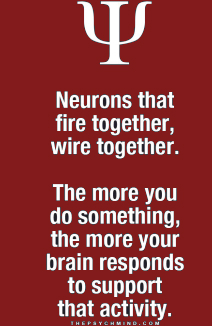Understanding Your Brain
Master your Powerful Brain - Gold Coast
Neuroscience involves the study of the nervous system and the brain. Here we have listed just a few tid-bits from neuroschience about the brain to give you some insight into the stress/anxiety response and how you might begin to re-wire your brain leading to enhanced emotional well-being.
Emotional programming actually begins in the womb!
-
A fetus brain and nervous system starts developing about half way through pregnancy and the mother’s chemistry of emotions and behavioural patterns are learnt by the fetus via the placenta. For example, if the mother is stressed the stress hormones are passed through her blood and are programmed into the fetus brain and nervous system.
-
Emotional programming is further developed in the brain through face to face recognition. The baby, from just three weeks of age, can distinguish on the basis of the eyes of the parents if the parents are happy, afraid or angry. Yep, the baby is actually perceiving the environment through mum and dad.
-
As adults, how we think and feel about our self and others is dependent on our learned history. And how we respond behaviourally to new experiences depends on whether our brain perceived earlier learned experiences as threatening or positive. This is important whether you are a parent yourself or whether you want to deepen your understanding of why at times you automatically react.

Caveman brain in the 21st century (or why you become easily stressed and anxious):
- Our ancestors survived to pass on their genes because inbuilt in their brain was a primal survival stress response to activate the body to run from, or fight off, real danger – commonly known as the ‘fight, flight or flee’ system.
- In the 21st century our stress response (fight, flight, or freeze system) is still locked and loaded and ready to respond. And, it will respond this way whether we perceive a real threat such as a growling lion, or a experience a mental annoyance such as a snarly comment from our partner or others.
- Not only do our memory systems for positive and neutral experiences take 5 to 20 seconds longer to register because our ancestors did not need this neural pathway for survival, but our brain also uses an express neural pathway to stay on high alert for incoming threats. What does this mean for you? It means that you are naturally more likely to perceive and fixate on what’s going wrong in the world around you instead of what’s going right, and this will more readily activate your stress response. This phenomenon is known as the brain’s negativity bias.

Our Amygdala Activates our Stress Response:
- Our amygdala, situated in the emotional brain (the limbic system), is like our stress thermostat, deciding what our base line of stress ought to be to keep us safe and ensure our survival.
- Unfortunately, when stress is relentless the amygda can actually become confused, mixing up the signals for danger and safety, so to protect us it opts to keep the stress response (fight/flight/freeze system) switch turned to 'on'. This switch will continuously activate stress chemicals, such as cortisol, to cascade throughout the body. Being in a heightened stress state for long periods is both physically and emotionally bad for us. We will be more prone to experience anxiety and panic attacks along with illnesses such as fibromyalgia, adrenal fatigue, and chronic fatigue syndrome.
However, new developments in neuroscience have identified ways in which to re-set the switch In our amygdala back to a normal position.
Neuroscientists have found that the brain’s neural pathways can actually be re-wired in response to new experiences - you can learn to 'switch on' the relaxation response.
Contact us at our Palm Beach office, or via Skype at eastqldcounselling to learn how to 're-wire' your brain and relieve stress and anxiety today.


